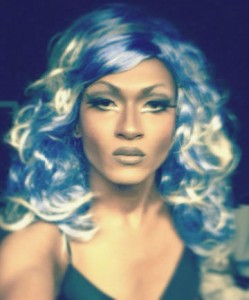The Ministry of Economic Development has decided to temporarily extend the closing time for food outlets during the World Cup.
An announcement from the ministry issued yesterday stated that food outlets will be allowed to operate until 3am from June 14 until July 14.
The ministry requested service providers and customers to observe socially acceptable behavior during these hours.
Interested businesses are to obtain a special temporary permit from the ministry.
Malé City Council has told Minivan News that, following this decision, the council will once again renew its efforts to bring back 24 hours opening times for shops and cafe’s.
While the World Cup matches run into to the early hours in Maldives, many people stay up to watching the games – some at public screens and in cafes.
Football is the most popular sport in country, with President Abdulla Yameen recently describing it as the “king or queen of sports” in the Maldives.
Many international football tournaments, particularly the World Cup, generate huge enthusiasm across the country with media and businesses such as electronic equipment dealers making special offers and promotions for the season.
Currently, all food outlets in the Maldives are required to be closed after 1am hours, and shops by 11pm.
24 hour permit were issued to one Malé eatery in 2003, and since then a few more businesses have been allowed to operate around the clock.
In December 2010, however, the government decided to give permission to all cafe’s who made such a request, allowing 24 hour shops for the first time in 2011.
A senior member of the Economic Ministry at the time said that the government wanted to open more opportunities for businesses and were in the process of reviewing laws and regulations to end restrictions.
In October 2012, however, Dr Mohamed Waheed’s administration revoked all permits issued for 24 hours businesses “for national security reasons” as a response to increasing criminal activity. The decision was made in the aftermath of the brutal murder of the MP and moderate Islamic Scholar Dr Afrasheem Ali.
A total of 44 businesses were affected by this decision in the capital Malé city alone – leading to public discontentment.
President Abdulla Yameen’s government has continued the reduced opening hours, deciding against bringing back 24 hour businesses.
In March this year, Malé City Council unanimously passed a resolution to work towards bringing back the 24 hour permits through dialogue with the government to “fulfill basic necessities of people”.
“We will do whatever it takes. This is the capital city, and there are 24 hours ferries operating, people coming from other islands, people are working round the clock. There should be some way for them to eat or buy things they need. We are talking about basic necessities of the people,” Councilman Shamau Shareef told Minivan News at the time.
The council today said that this attempt was unsuccessful due to immediate negative comments on the issue from the government, adding that the council was not consulted or informed of the extended World Cup opening times.
Speaking to Minivan News today Deputy Mayor Shifa Mohamed said the council will now renew its efforts.
“We are not talking about allowing all cafe’s and shops to run 24 hours. We asked [the government] to allow a few shops and cafe’s to run like that to fulfill basic necessities of the people,” said Shifa.
